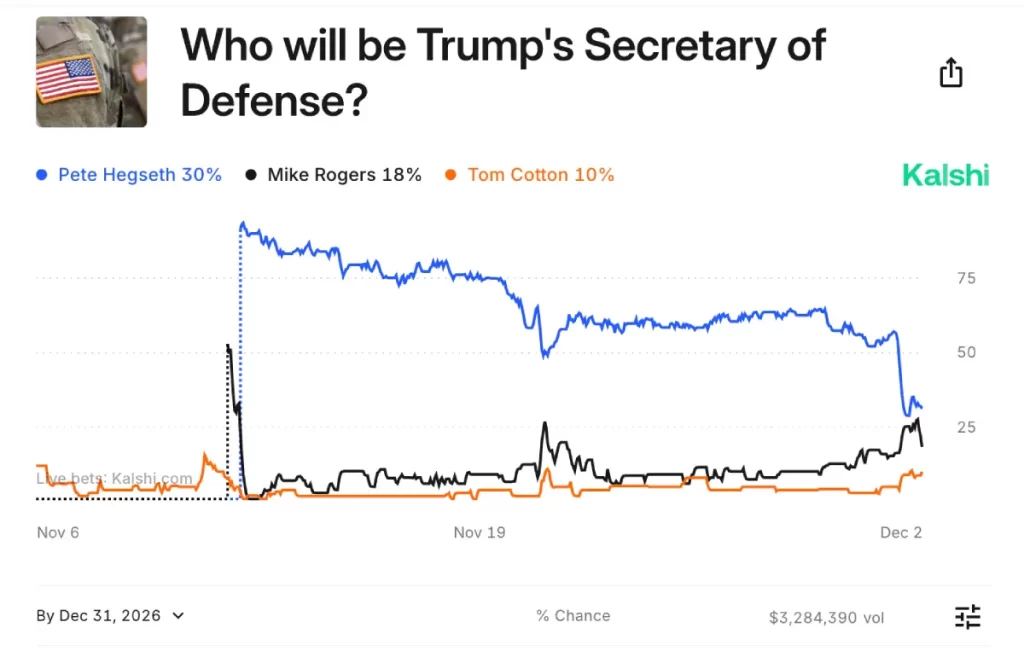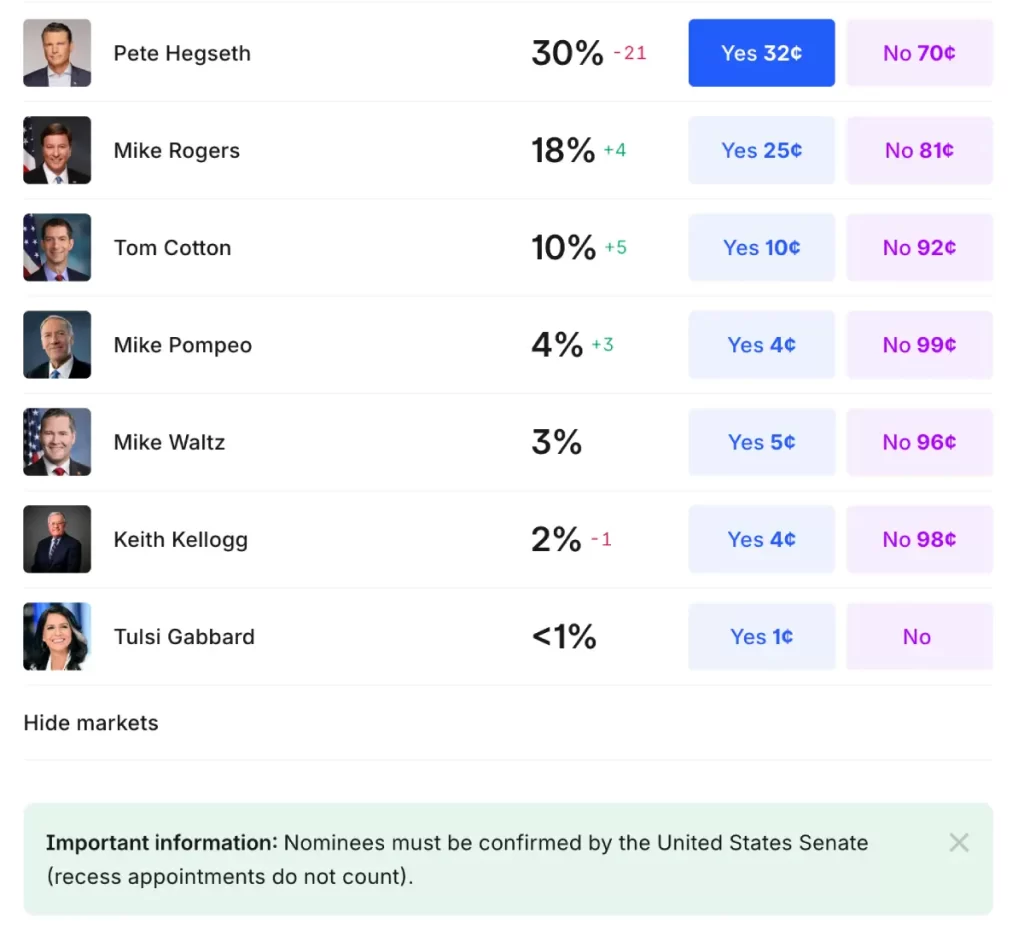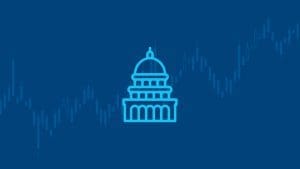Prediction markets have begun pricing Donald Trump’s unpredictability into their Cabinet markets. To begin the week, Kalshi’s Secretary of Defense market left about a 33% chance that Trump’s nominee was not someone listed within the market.
On Dec. 2, trading volume was almost $3.3 million. By the morning of Dec. 4, trading volume broke $4.5 million. It is one of the largest Trump Cabinet markets on Kalshi and one with many active traders.

Scandals shake market confidence
Trump’s initial pick, Pete Hegseth, is a combat veteran and former Fox News host. However, Hegseth has no prior government experience outside of his time in the military and comes with a history of controversies, including:
- Public drinking problems at work
- Financial misconduct
- A rape allegation from 2017
- His mother’s leaked 2018 email calling him “an abuser of women”
Trump’s influence over the Republican Party has limits. His first attorney general pick, Matt Gaetz, withdrew from consideration after allegations of sex trafficking and sex with underage girls surfaced. Gaetz’s confirmation odds hovered between 40% and 50% for much of his listing in Kalshi’s AG market.
Kalshi traders are skeptical that Hegseth can weather his own storm of scandals. On Dec. 3, the Wall Street Journal reported that Trump was considering Florida Governor Ron DeSantis as the new nominee. DeSantis ran against Trump in the Republican primary.
Historically, Trump has often chosen “wild card” nominees for high-profile positions. Among his first 15 Cabinet nominations, nine were unlisted when prediction markets initially launched. Figures like Gaetz and Hegseth only appeared after Trump’s announcements.
On Monday, Dec. 2, Kalshi’s odds on any listed candidate being confirmed for secretary of defense added to about 67%. After Steve Feinberg, Joni Ernst, and DeSantis were added to the market, that uncertainty was warranted.

This isn’t just a market on whether a listed nominee will serve as Trump’s defense secretary. Kalshi’s settlement terms require the Senate to confirm the nominees. If Trump fills his Cabinet with recess appointments, then these markets will resolve to “No.”
Political realities
Recess appointments allow the president to bypass Senate confirmation by temporarily installing nominees while Congress is out of session. Such appointments enable Trump to sidestep senators who are hesitant to back controversial choices.
For instance, Maine Senator Susan Collins, facing reelection in 2026, may tread carefully. Maine has leaned Democratic since the 1990s, and Collins’ bid for a sixth term will require appealing to a divided electorate.
By using recess appointments, Trump could avoid confirmation battles and get his choices in power without Senate approval.
Despite the potential for controversial picks, political realities impose constraints on Trump’s choices. Senators like Collins, who face politically precarious elections, may pressure Trump to pivot from a candidate like Hegseth. Even so, Trump’s history suggests that prediction markets should prepare for surprises—including nominees not yet on anyone’s radar.

























